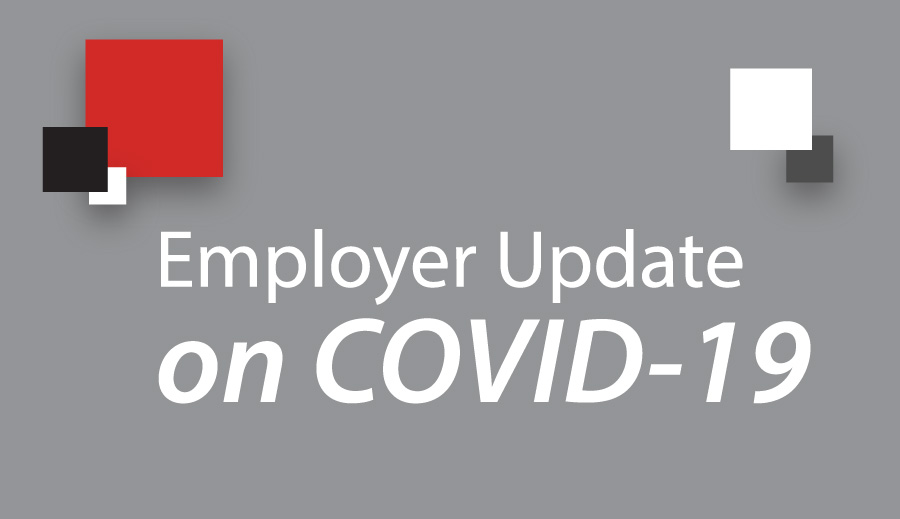
FFCRA Summary – March 19, 2020
March 19, 2020
Human Resources: How We Can Help
March 25, 2020Governor Edwards has issued a statewide stay-at-home order for Louisiana effective 5 p.m. on March 23. Under this order “people should not go to work unless providing essential services …”
Click here for more information about “essential services.”
As we all struggle to adapt to the “new normal,” business owners are having to make tough decisions that will impact their company today, tomorrow and in the future when the world returns to the “old normal” – life as we knew it before the coronavirus pandemic. Here is some information to help guide you through these difficult decisions:
- Many businesses are shut down completely for the next few weeks or have reduced operations due to customers “sheltering in place.” If your business falls into this category, you may have already been forced to lay off all or most of your employees. Employees who are laid off due to COVID-19 (this should be stated on the Separation Notice filed by the employer with the State) are eligible to file for and receive unemployment benefits up to $247 maximum for 26 weeks. Employers, with a few exceptions, have already paid for this benefit through payroll taxes for Unemployment Insurance (UI). NOTE: UI tax payments for the 1st quarter of 2020 have been deferred until June 30; however Wage and Tax Reports must be filed by April 30.
- If you have to lay off employees, it’s a good idea to collect any company property (keys, etc.) so that you have control of these items. Maintain contact with employees so that you have a trained workforce available for rehire when business returns to normal.
- As an alternative to layoffs, consider reducing your five-day workweek to a four-day workweek, which reduces payroll by 20 percent, allows employees to earn more than they would receive from unemployment benefits, and maintains your skilled workforce.
- Business owners should make health and safety of employees and customers a primary concern because it’s the right thing to do. In addition, the Occupational Safety and Health Administration (OSHA) requires employers to provide a workplace that is free of hazards, including transmission of disease such as coronavirus.
- Rethink the way you do business – staggering work schedules so that fewer people are in the workspace at the same time, providing hand-washing stations, establishing distance requirements between workers or with customers.
- Require employees to stay home if they exhibit symptoms of coronavirus, report that they have been exposed to someone who tested positive, etc. Employers may ask questions about employees’ health condition, take their temperature, and should advise other employees if a co-worker tests positive (preserving privacy as much as possible). Employees who have “underlying health conditions,” including comprised immune systems, or who live with someone who does, should be allowed to work from home if at all possible.
- If feasible for your business operations, you may also consider allowing or requiring employees to work remotely. Establish written guidelines for virtual workers about expectations for hours to be worked, communication with other team members, use of technology, etc. For maximum engagement, involve your employees in establishing these guidelines.
- Pay employees correctly during any reduction of hours. Exempt employees (determined by Fair Labor Standards Act guidelines) must be paid their regular salary if they perform any job duties during the workweek (pay may be adjusted for reduced workweek); non-exempt employees must be paid for actual time worked.
- Effective April 2, the Families First Coronavirus Response Act (FFCRA) goes into effect for all employers with less than 500 employees. The FFCRA provides two weeks of paid leave for all employees (full pay for self-care, 2/3 regular rate to care for others, pro-rated based on regular schedule for part-time employees) and an additional ten weeks of family leave for employees who have worked at least 30 days, paid at 2/3 regular rate to care for children whose school or child care provider is closed. NOTE: Employers with less than 50 employees may request exemption from providing FFCRA benefits from the Secretary of Labor (details to be announced by the Department of Labor soon).
An HR professional can help you with all of your human resources needs. From hiring the right employees, running background checks, creating employee handbooks that include anti-harassment policies and procedures, and so much more, Next Level Solutions can work with you to provide the services that you need to run your business.
Don’t risk being out of compliance or letting your employee handbook become obsolete; give us a call today to see how we can become your human resources partner.


